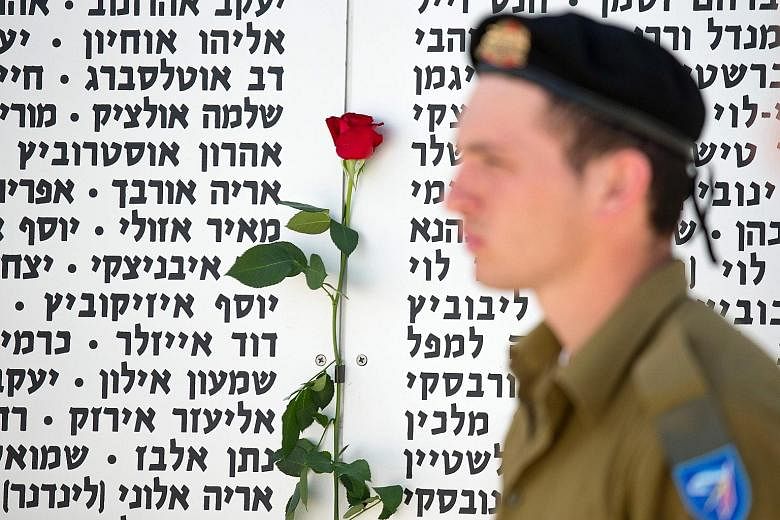JERUSALEM • In a politically fractious country troubled by monumental security challenges, Israel's military has long served as an equaliser and unifier, a "people's army" that, at least in the eyes of the Jewish majority, reflected the general interest.
But the Israeli people have shifted to the right and with them the government, amid an upsurge of Palestinian stabbings and other attacks. Now, the military finds itself at the centre of a tumultuous debate about its role as the nation's conscience and most trusted institution.
The pressure on the military is also growing in light of the appointment yesterday of hardliner Avigdor Lieberman as defence minister. He agreed to bring his Yisrael Beitenu party into the country's governing coalition, shoring up Prime Minister Benjamin Netanyahu's one-seat majority.
Mr Lieberman, who will now serve as the army's overlord and who has twice previously served as foreign minister, has been among the harshest critics of Israeli security policies.
His immediate predecessor Moshe Yaalon, a conservative and former military chief of staff who was pushed out, had staunchly backed the generals, who have spoken out against manifestations of extremism in the ranks and in broader society.
"Generally, the image of an army is that it wants to push forward and it has to be restrained sometimes by the politicians, statesmen who think in a wider context and know that they need to make compromises," said Hebrew University of Jerusalem political science professor Shlomo Avineri. "In Israel, the present situation is almost the opposite."
The military chiefs, Prof Avineri added, are "not wishy-washy liberals".
The fissure is not between the traditional Israeli right and left, he said, but between "strategic hawks", or pragmatists who put Israel's security first, and "ideological hawks", who are more concerned with historical rights and Jewish nationalism.
In recent years, Prof Avineri said, senior military officials, together with the Mossad and Shin Bet security chiefs, were widely credited with having opposed and ultimately blocked Israeli government plans to prepare for an attack on Iran's nuclear facilities, believing it would have disastrous consequences.
The debate over the military's role could have a profound impact in Israel, where most Jewish 18-year-olds are drafted for compulsory service and the commanders of the air, ground and naval forces often become household names.
But the recent surge in violence has strained those views of the military.
NEW YORK TIMES, AGENCE FRANCE-PRESSE

